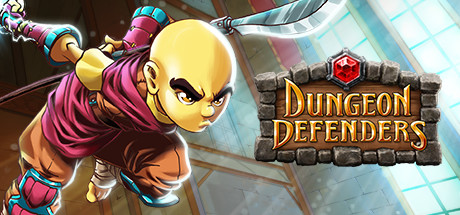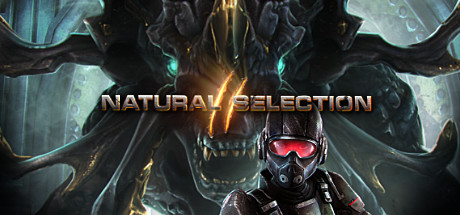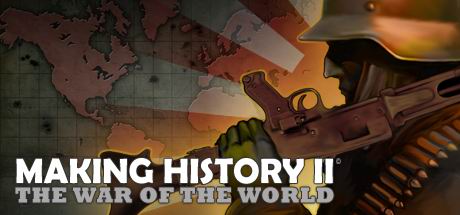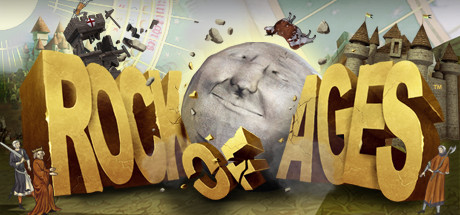Inscryption Reviews
Inscryption is an inky black card-based odyssey that blends the deckbuilding roguelike, escape-room style puzzles, and psychological horror into a blood-laced smoothie. Darker still are the secrets inscrybed upon the cards...
| App ID | 1092790 |
| App Type | GAME |
| Developers | Daniel Mullins Games |
| Publishers | Devolver Digital |
| Categories | Single-player, Steam Achievements, Steam Cloud, Steam Trading Cards |
| Genres | Indie, Strategy, Adventure |
| Release Date | 19 Oct, 2021 |
| Platforms | Windows, Mac, Linux |
| Supported Languages | English, Portuguese - Brazil, French, Italian, German, Spanish - Spain, Simplified Chinese, Traditional Chinese, Japanese, Russian, Korean, Turkish |
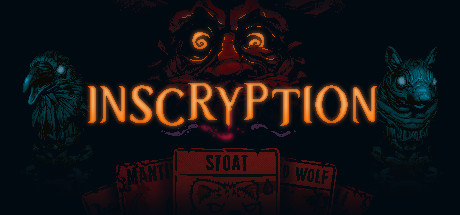
130 616 Total Reviews
126 577 Positive Reviews
4 039 Negative Reviews
Overwhelmingly Positive Score
Inscryption has garnered a total of 130 616 reviews, with 126 577 positive reviews and 4 039 negative reviews, resulting in a ‘Overwhelmingly Positive’ overall score.
Reviews Chart
Chart above illustrates the trend of feedback for Inscryption over time, showcasing the dynamic changes in player opinions as new updates and features have been introduced. This visual representation helps to understand the game's reception and how it has evolved.
Recent Steam Reviews
This section displays the 10 most recent Steam reviews for the game, showcasing a mix of player experiences and sentiments. Each review summary includes the total playtime along with the number of thumbs-up and thumbs-down reactions, clearly indicating the community's feedback
Playtime:
9316 minutes
Is it healthy to have so many hours in a game like this? Most likely not but gotten all these hours I have and get all these hours once again I very much expect I will.
The main story that I played all that time ago I felt was well worth the one playthrough it got. It presents itself at first as mix of roguelite deck builder and escape room and in typical Daniel Mullins fashion, the rules change a bit over time as, also in Daniel Mullins fashion, we find ourselves slap bang in the middle of an extremely haunted video game with any number of characters within trying to take advantage of and/or torment the player avatar. It can certainly be said of it that it is an experience. It can also certainly be said of it that as the game space and mechanics expand and become more elaborate, the more barren your surroundings and the more thoughtless your actions both become, leaving you concerned all too much with just ending the damn thing. Act 3 seems to do this on purpose and as such I must give a word of advice: lampshading that the longest, most tedious part of your game is pure tedium the played must endure does not excuse the pure tedium that YOU made everyone have to endure. Suffice to say, on the second run, it did not really hold up.
As much as Kaycee's Mod (despite the name, a post-game extra mode) could be reasonably viewed as sort of an apology to all those who ultimately bought the game for its first act and was disappointed to discover the other two (they are, in fairness, more *interesting* than fun), it is the shot in the arm that can take all of the credit. As you might imagine, it's the first act of the game transformed into something more akin to the other roguelite deckbuilders you know - increasingly painful mutators, extra starting decks, rebalancing of the game's worst offenders (that's right Kaycee, what you did to the Fecundity sigil DID have to be done), increased buckwild randomness and so on. It is simultaneously wildly unfair, totally unforgiving and a power trip and those experiences come in just the right measures that I keep coming back again and again.
Give it a shot. And if you find yourself only wanting to play Act 1 and not the others: it's Shift + K + M - hope that helps.
👍 : 1 |
😃 : 0
Positive
Playtime:
11566 minutes
Very fun game, a lot of replayability, went in blind and would definitely say that's the best way to experience the story. This is such a masterpiece of a game, and I like how Kaycee's mod shifts up the gameplay a little bit. It was able to run at ~60 fps on my shitty laptop with low graphics settings, 10/10 would recommend.
👍 : 1 |
😃 : 0
Positive
Playtime:
947 minutes
Gameplay is really engaging with fresh mechanics that build complexity. Game design is super creative, don't search anything up and play it!
👍 : 2 |
😃 : 0
Positive
Playtime:
1268 minutes
/!\ Potential spoilers ahead /!\
This game is an absolute trip to insanity, and it does it so well that the ending wont leave you emotionless.
That said, the game have some daunting moments, but i encourage you to push through and go for the story 100% (i insist, do all the secret stuff in the story, its worth doing). Id say it took me about 15 hours at most to do the whole story, and it didnt feel like it.
This game at first glance can look like a deckbuilder kinda like heartstone, but its only a facade, the real game is everything behind it. It doesnt mean that the gameplay isnt important, its equally important and it has its own mechanics that are really cool to explore.
The game has excellent replayability via Kaycee's mod (unlockable either by completing the game once, or entering a secret sequence in the menu) that will keep you in what is arguably the best part of the game. HOWEVER ! Even myself had really bad feeling after act1, the bar was so high, the start of act2 felt... weird and underwhelming, after a few weeks i finally decided to finish the story, and i just spent 12 hours on it. Theres plenty of hidden details, of puzzles and enigmas that are worth your time.
To do a quick summary:
- A deck builder with its own quirks and ideas that make it unique and well thought, very imbalanced in favor the player in the story part of the game.
- A story worthy of your time, despite the transition from act 1 to act 2 being weird and can feel underwhelming at first.
- A rogue-like mod unlockable that provide excellent replayability.
- Puzzles and enigmas that are really well thought, not specifically hard, but make you use your brain.
- An atmosphere that peaks in act 1.
I can only recommend the game mainly for its story, im not a fan of deckbuilders myself and yet i find myself enjoying this game quite a lot and trying to slowly beat kaycee's mod over time.
👍 : 5 |
😃 : 0
Positive
Playtime:
920 minutes
I'm very late to this game but wow was it great. Act is is 10/10, Act 2 and 3 are a mixed bag mostly because you get so used to Act 1 that they are pretty daunting.
Not much else to say. Fantastic passion project from Daniel Mullins. Play it, you won't be disappointed.
👍 : 3 |
😃 : 0
Positive
Playtime:
1202 minutes
I would recommend this game, but not to those who are after a fair deck building experience. Now, if you would like to be creeped out, then certainly...
Still, I would like to shake their hand. This was a wonderful game and I went to bed thinking about it over the past week.
Your opponent is more like a casino dealer with 10 aces up their sleeve rather than a traditional opponent, which is why it feels unfair at times. Your opponent, for instance, will put down four things on the board to challenge you on the first round, and you might only have the resources to do one. So it's best to think of the games as encounters or puzzles rather than 1v1. That said, there's enough strategy for your brain to chew on. Sometimes you're presented with difficult odds, but you will manage to pull through if you work on strategy or just straight up surviving rather than raw power. Have no pride with your "power-ups" and do not save them. Some scenarios will punish you for being stingy.
If you fail you will not fail forever. You can make some decisions for yourself that will make you more powerful later. So sometimes it felt like you were waiting to get stronger and luck dealing me good cards. I would be interested to see a 0 death run-through to see if avoiding death is reasonably feasible.
Inscryption is a fun and interesting game, and I have so many screenshots I want to share but I aught to not because I want others to experience it too. So get on it!
👍 : 8 |
😃 : 0
Positive
Playtime:
1028 minutes
An amazing blend of roguelike and story - going in blind highly encouraged!
Also I got to play YuGiOh! against a tree. 10/10.
👍 : 5 |
😃 : 1
Positive
Playtime:
717 minutes
A psychological horror roguelike deck builder with a mix of escape room puzzles. Everything from story, the games mechanics, and game play loop make this one of my favorite games I could easily replay. 10/10 I couldn't recommend this game enough.
👍 : 13 |
😃 : 1
Positive
Playtime:
7599 minutes
i love this game omgggg i've been hyperfixed on it for a month i lowkey wanna make my own little board game version of it so my friends can play w me im actually obsessed the gameplay? the art styles? the storytelling?? im kissing the creators on the cheek i love yall AUGHHHHHHHHHHH
👍 : 6 |
😃 : 0
Positive
Playtime:
1220 minutes
Let’s delve a bit into this fascinating experience.
This is one of the best examples of storytelling I’ve seen in a card game. I really loved the layers involved in breaking the fourth wall, in fact, the fourth wall is broken through many different stages until it finally reaches you, the player. (It also appears in other ways, of course, such as integrating the main menu directly into the gameplay.) We begin by standing up from the table where we’re playing a “deck builder” game and interacting with the person sitting across from us, along with the atmosphere surrounding us. At the end of that initial interaction (in Act 1), additional major figures begin to appear through the talking cards, and with Act 2, a sort of “narrative” takes shape on the top of that mysterious ambiance. Meanwhile, an ARG storyline and the concept of “old data” start developing through the player’s perspective. By Act 3, the scope of breaking the fourth wall extends to us, like showing Steam friends as enemies and even accessing computer files. Finally, the relationships among these figures build to a peak and conclude.
I can explain these layers more clearly; it’s essentially related to what you perceive as the “most encompassing” element within the game. If we are only playing a card game, our universe within the game is limited to just that. If we stand up from our place and interact with the person we’re playing with, our universe expands to the figure compelling us to play the card game and keeping us confined in the cabin. If, beyond this single figure, we observe other characters of similar importance and power, and notice that the story revolves around these four characters, and we individually interact with each, then our universe elevates to include these four figures and their stories. Furthermore, if we encounter an ARG aspect connected to all these elements, and we also follow the IRL narrative of the person playing the game, and finally, if we arrive at mechanics that affect not only that person but also us directly, our universe expands considerably. Throughout the game, we sequentially move through these layers in an interesting way.
These techniques by themselves might not be overwhelmingly impressive, indeed, many games use them, and their impact doesn’t always last long. Even though I’d rather avoid overly abstract discussions, the essence of my point is that each technique has been developed so solidly and expansively that you could call it its own “layer,” and the relationship among these layers is high-quality enough that you might call it a dimension. I really enjoyed being in this sort of fourth-wall-breaking space. I tip my hat to the game’s storytelling, which offers many valuable insights.
I haven’t even gotten to the mechanics yet, have I? While all this is happening, the game’s mechanics diversify within each act, and each time you switch acts, it transforms into something different. Sometimes, when I think of deck builder games, I compare them, but it doesn’t make much sense to line this one up against others. I think it really achieves its own goals. To briefly mention mechanics, I believe it also delivers a very strong gameplay experience. The integration of storytelling into gameplay is done naturally and effectively, so yes, it’s a good game even if you only think of it as a deck builder.
Some wild theories suggest each “Scrybe” represents certain attributes defining a game design or even a good creation of a world. However, considering the personas of the Scrybes and their interactions, these theories don’t seem far-fetched. More reasonably, we might reflect on what each Scrybe values and the experiences they provide us. I won’t go into further detail, but it’s worth exploring and thinking about.
Regarding the ARG component, if you really push the boundaries and investigate, you can discover some very fascinating things, and it turns into a whole different adventure. As you dig deeper into the concept of “old data,” you realize it’s not only confined to the game itself, it reaches into other games as well. However, I don’t think it’s necessary to go that deep. I did enjoy the atmosphere added by the occasional IRL videos, but I don’t think they’re essential for the game’s narrative. It’s certainly fun if you’re curious, though.
It’s a game that has you questioning, at every step, who is truly “living,” who is real, what exactly we’re in, and who remembers what.
Finally, there were definitely moments when I got a bit bored or couldn’t fully immerse myself. Introducing so many different mechanics and an ever-changing storytelling technique naturally leads to that. You’d need a more “packaged” product to keep it consistent. This is often the case with games prioritizing “experience.” Of course, there are plenty of things that could have been done better, maybe issues or omissions I’ve noticed, especially the things you might need to know to ground the story in a more logical context. (even if completing every detail isn’t always necessary or beneficial for storytelling) Still, before I focus on any of that, I really must say: play, experience, and live this game. There’s plenty worth exploring. This is my favorite aspect of games: the experience a game provides can be truly unique due to its broad scope.
👍 : 20 |
😃 : 1
Positive


